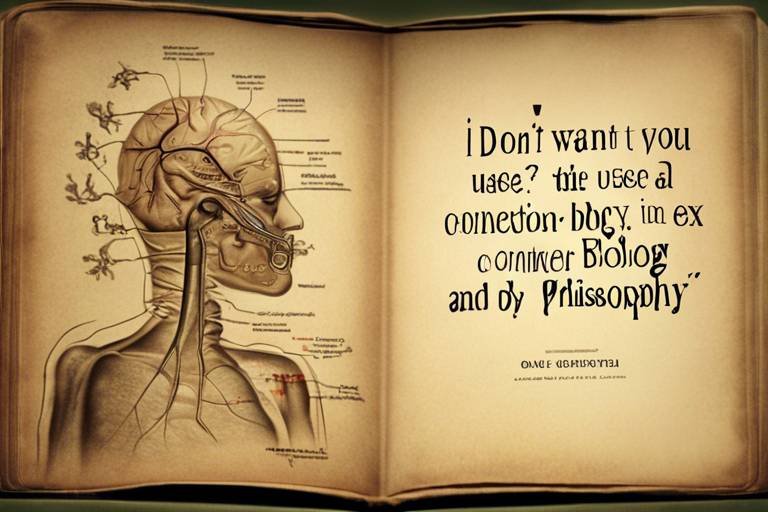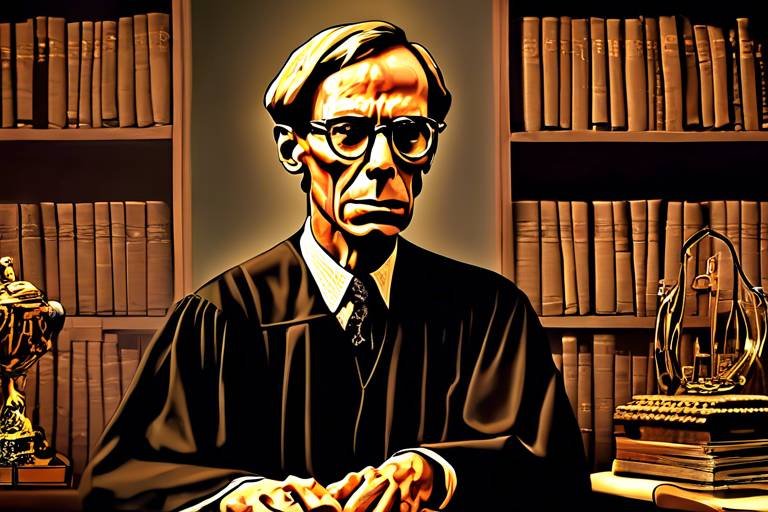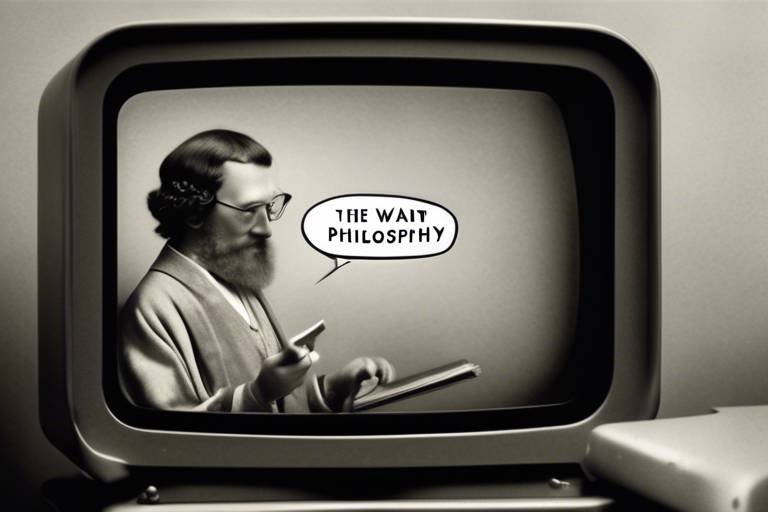Friedrich Hegel's Impact on Modern Thought
Friedrich Hegel, a towering figure in philosophy, has left an indelible mark on modern thought that resonates through various disciplines today. His intricate ideas have not only shaped the landscape of philosophy but have also influenced political theory, economics, and even art. When we delve into Hegel's work, we uncover a rich tapestry of concepts that challenge our understanding of reality, society, and individual existence. This article aims to explore the profound influence of Hegel's philosophy on contemporary intellectual landscapes, examining key concepts, critiques, and the legacy he left behind in various fields of thought.
One of the most significant contributions Hegel made to philosophy is his dialectical method, which revolutionized how we engage with ideas. Imagine this method as a dynamic dance where ideas clash and merge, leading to new understandings. This process of thesis, antithesis, and synthesis not only reshapes philosophical discourse but also provides a framework for understanding conflict and resolution in society. In a world filled with opposing viewpoints, Hegel's dialectical approach encourages us to embrace contradictions as a means of growth and evolution.
Hegel's influence extends deeply into Marxism, where his ideas were adapted by Karl Marx to critique capitalism and advocate for social change. Marx took Hegel's dialectics and turned them on their head, applying them to material conditions rather than abstract ideas. This adaptation laid the groundwork for historical materialism, which examines the ways in which material conditions shape societal structures and historical development. Hegel's notion of contradictions, which highlights the complexities within societal structures, reveals how opposing forces drive historical progress and transformation in human consciousness.
At the core of Hegel's philosophy is the belief that history unfolds rationally, with each era reflecting the evolution of human freedom and self-awareness. This idea resonates in contemporary historical analysis, where scholars strive to understand how past events shape our present and future. Hegel's concept of ethical life (Sittlichkeit) emphasizes the importance of community and social institutions in shaping individual identity. This notion has significant implications for modern discussions on ethics and social responsibility, prompting us to consider how our actions impact the collective.
However, Hegel's philosophy is not without its critiques. Many have challenged his idealism and the perceived obscurity of his writing, sparking debates that continue to shape modern philosophical discourse. Critics argue that Hegel's complex language can alienate readers, making his ideas less accessible. Yet, this very complexity invites deeper engagement and interpretation, pushing thinkers to grapple with the nuances of his thought.
As we move forward, it's clear that Hegel's impact on existentialism is another critical aspect of his legacy. His emphasis on self-consciousness and the individual's role in shaping reality laid the groundwork for existentialist thinkers who confront themes of freedom, authenticity, and the absurd. The development of self-consciousness in Hegel's philosophy underscores the importance of recognition and the interplay between the individual and society, influencing existentialist notions of identity.
Moreover, Hegel's exploration of freedom and alienation has been pivotal for existentialist thought, prompting reflections on the individual's struggle for authenticity in a complex social world. This exploration invites us to ponder: how do we navigate our identities in a society that often imposes rigid structures and expectations? Hegel's work provides a lens through which we can examine these pressing questions.
Finally, Hegel's ideas on the state, freedom, and the ethical dimensions of governance continue to inform contemporary political theory. His thoughts influence debates on democracy, rights, and the role of the state in individual lives. In a time when political discourse is often polarized, Hegel's dialectical method encourages us to seek common ground and understand the underlying structures that shape our political landscape.
- What is Hegel's dialectical method? Hegel's dialectical method is a process of development through conflict, involving the stages of thesis, antithesis, and synthesis.
- How did Hegel influence Marxism? Hegel's ideas were adapted by Karl Marx to develop historical materialism, focusing on material conditions rather than abstract ideas.
- What is ethical life (Sittlichkeit)? Ethical life refers to the role of community and social institutions in shaping individual identity and moral responsibility.
- What are the main critiques of Hegel's philosophy? Critics often challenge Hegel's idealism and the complexity of his writing, which can make his ideas less accessible.
- How does Hegel's work relate to existentialism? Hegel's emphasis on self-consciousness and freedom has significantly influenced existentialist thinkers grappling with identity and authenticity.
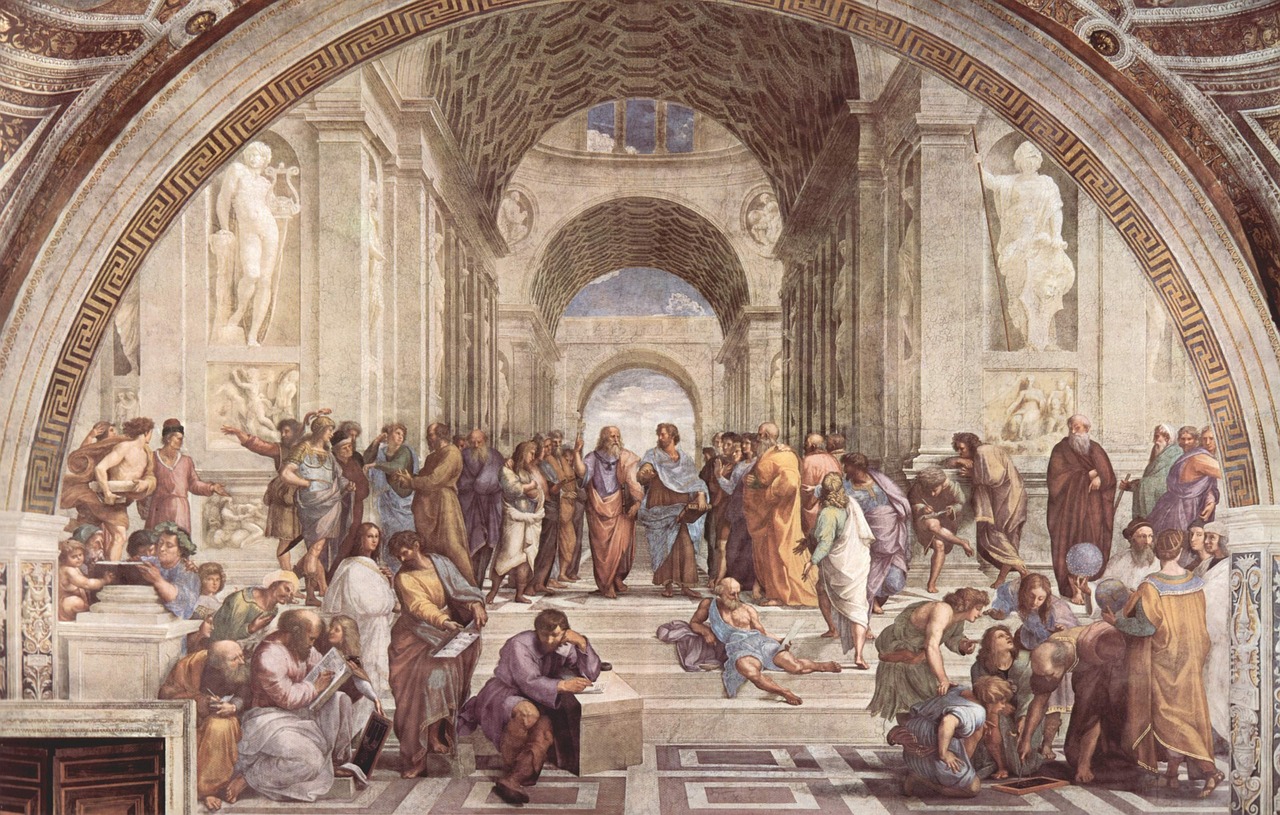
The Dialectical Method
Friedrich Hegel's dialectical method is nothing short of revolutionary—it fundamentally changed the way we engage with philosophical discourse. Imagine a dynamic dance between ideas, where each step leads to another, creating a rhythm of thought that challenges and refines our understanding of reality. This method, often summarized as the triadic structure of thesis, antithesis, and synthesis, invites us to see conflict not as a barrier but as a catalyst for growth and evolution.
At its core, the dialectical method suggests that every idea (the thesis) inevitably encounters its opposite (the antithesis). This clash is not merely destructive; rather, it serves as a crucible for forging new insights. The resolution of this conflict produces a synthesis, which transcends and incorporates elements of both the thesis and antithesis. This process is not linear but cyclical, as each synthesis can become a new thesis, leading to further contradictions and resolutions. It’s like a never-ending story where each chapter builds upon the last, continuously enriching our understanding of the world.
Consider how this method applies to societal issues. When we look at social movements, for example, we can see Hegel's dialectical method in action:
- Thesis: The existing social order.
- Antithesis: The push for change (e.g., civil rights, feminism).
- Synthesis: A new social order that incorporates the valid demands of the movement while addressing the needs of the broader community.
This dynamic interplay between conflicting ideas not only shapes our intellectual landscape but also helps us navigate the complexities of human experience. Hegel believed that through this dialectical process, we can achieve a deeper understanding of truth—a truth that is not static but evolves with our consciousness. This perspective encourages us to embrace contradictions as essential components of growth, urging us to look beyond simplistic binaries and appreciate the rich tapestry of human thought and experience.
Moreover, Hegel's dialectical method has significant implications for various fields beyond philosophy, including politics, ethics, and even science. In politics, for instance, it can be applied to understand the evolution of political ideologies and governance systems. In ethics, it prompts us to consider how moral values are shaped through societal interactions and conflicts. The method invites us to engage with ideas critically and constructively, fostering a culture of dialogue and understanding.
In summary, Hegel's dialectical method is more than just a philosophical tool; it is a lens through which we can view the world. By recognizing the inherent conflicts in ideas and society, we can appreciate the ongoing journey of human thought and the potential for progress that arises from it. So, the next time you encounter a disagreement or a conflicting idea, remember that it might just be the beginning of a new synthesis waiting to emerge.

Influence on Marxism
Friedrich Hegel's philosophy has left an indelible mark on the development of Marxism, shaping its core principles and guiding its critique of capitalism. At the heart of this influence is Hegel's dialectical method, which Karl Marx adapted to formulate his own theories of historical materialism. But what does this really mean? Essentially, Hegel viewed history as a rational process, driven by contradictions and conflicts that ultimately lead to progress. Marx took this idea and flipped it on its head, arguing that material conditions and economic factors, rather than abstract ideas, primarily drive historical change.
One of the most significant ways Hegel influenced Marx was through the concept of contradictions in society. Hegel posited that opposing forces are essential for historical progress; this idea resonated deeply with Marx, who observed that the class struggles inherent in capitalism were not just conflicts but crucial catalysts for societal transformation. In Marx's view, the contradictions between the bourgeoisie and the proletariat would inevitably lead to the downfall of capitalism and the rise of a classless society. This perspective is not merely theoretical; it reflects a deep understanding of the social dynamics at play in the real world. As conflict arises, so too does the potential for change, a sentiment that echoes through both Hegelian and Marxist thought.
Moreover, Hegel's notion of historical development provided a framework for Marx to articulate his vision of economic evolution. Hegel believed that history unfolds in a rational manner, with each era representing a step toward greater human freedom and self-awareness. Marx adapted this idea, arguing that the progression of economic systems—from feudalism to capitalism and ultimately to socialism—mirrored this rational unfolding of history. This adaptation allowed Marx to critique the existing social order while providing a vision for a more equitable future.
Another crucial aspect of Hegel's influence is found in his concept of ethical life (Sittlichkeit). Hegel emphasized the role of social institutions and community in shaping individual identity and moral values. Marx, in turn, recognized that the economic base of society profoundly influences the superstructure, which includes culture, politics, and ethics. This understanding of the interconnectedness between individual and community is essential in Marxist thought, as it underscores the importance of collective action in the struggle for social change.
In summary, Hegel's impact on Marxism is multifaceted and profound. His dialectical method, focus on contradictions, views on historical development, and understanding of ethical life have shaped Marxist theory in significant ways. As we delve deeper into the complexities of social structures, we can appreciate how these philosophical foundations continue to resonate in contemporary discussions about capitalism, class struggle, and the quest for social justice.
- How did Hegel's dialectical method influence Marxism?
Hegel's dialectical method introduced a framework of thesis, antithesis, and synthesis, which Marx adapted to analyze class struggles and societal conflicts, emphasizing the importance of material conditions in historical development. - What role do contradictions play in Marxist theory?
Contradictions are central to Marxist theory as they highlight the conflicts between different classes, particularly the bourgeoisie and the proletariat, which drive historical change and societal transformation. - How does Hegel's concept of ethical life relate to Marxism?
Hegel's ethical life emphasizes the importance of community and social institutions in shaping individual identity, a concept that Marx acknowledges by linking economic structures to cultural and ethical dimensions of society.

Contradictions in Society
Friedrich Hegel's philosophy introduces a fascinating lens through which we can examine the intricate web of contradictions that shape our society. At the heart of Hegel's thought is the idea that contradictions are not merely obstacles to be overcome; rather, they are essential drivers of historical progress and transformation. Imagine a tug-of-war between opposing forces—each side pulling with all its might, creating tension that ultimately leads to a resolution, or synthesis, that transcends the initial conflict. This dynamic process is at the core of Hegel's dialectical method, which encourages us to embrace the complexities of our social structures.
In Hegel's view, contradictions manifest in various forms within society, such as the tension between individual desires and collective needs, or the clash between tradition and modernity. These contradictions reveal the complexities of human experience and highlight how they propel us toward greater self-awareness and freedom. For instance, consider the ongoing debate surrounding economic inequality. On one hand, capitalism promotes individual success and innovation; on the other hand, it often leads to systemic disparities that can marginalize entire communities. This contradiction not only reflects the struggle for social justice but also illustrates how opposing forces can drive societal change.
Moreover, Hegel posited that these contradictions are not static; they evolve over time, reflecting the shifting landscape of human consciousness. As new ideas emerge and societal norms are challenged, we witness a continual process of dialectical development. This evolution is crucial for understanding how societies adapt and transform in response to internal and external pressures. For example, the civil rights movement in the United States can be seen as a manifestation of the contradictions inherent in the nation’s founding ideals of liberty and equality versus the reality of systemic racism. The movement highlighted the tensions between these opposing forces, ultimately leading to significant societal shifts and a redefinition of what freedom means.
To further illustrate Hegel's perspective on contradictions, consider the following table that outlines key societal contradictions and their implications:
| Contradiction | Implication |
|---|---|
| Individual Rights vs. Collective Responsibility | Challenges in balancing personal freedoms with societal obligations. |
| Tradition vs. Innovation | The struggle between preserving cultural heritage and embracing modern advancements. |
| Globalization vs. Local Identity | Tensions arising from the influence of global culture on local traditions. |
In essence, Hegel's exploration of contradictions serves as a profound reminder that conflict is not inherently negative. Instead, it can be a catalyst for progress and enlightenment. By engaging with these contradictions, we open ourselves to a deeper understanding of the social dynamics at play in our lives. As we navigate through the complexities of modern society, Hegel's insights encourage us to embrace the tensions that challenge our perspectives and ultimately guide us toward a more nuanced and holistic view of reality.
- What is Hegel's dialectical method?
Hegel's dialectical method involves a process of thesis, antithesis, and synthesis, where conflicting ideas lead to a higher understanding or resolution. - How do contradictions drive societal change?
Contradictions highlight tensions within society that can lead to conflict, prompting reflection and ultimately resulting in transformation and progress. - What are some examples of societal contradictions?
Examples include the tension between individual rights and collective responsibility, as well as the conflict between tradition and innovation.
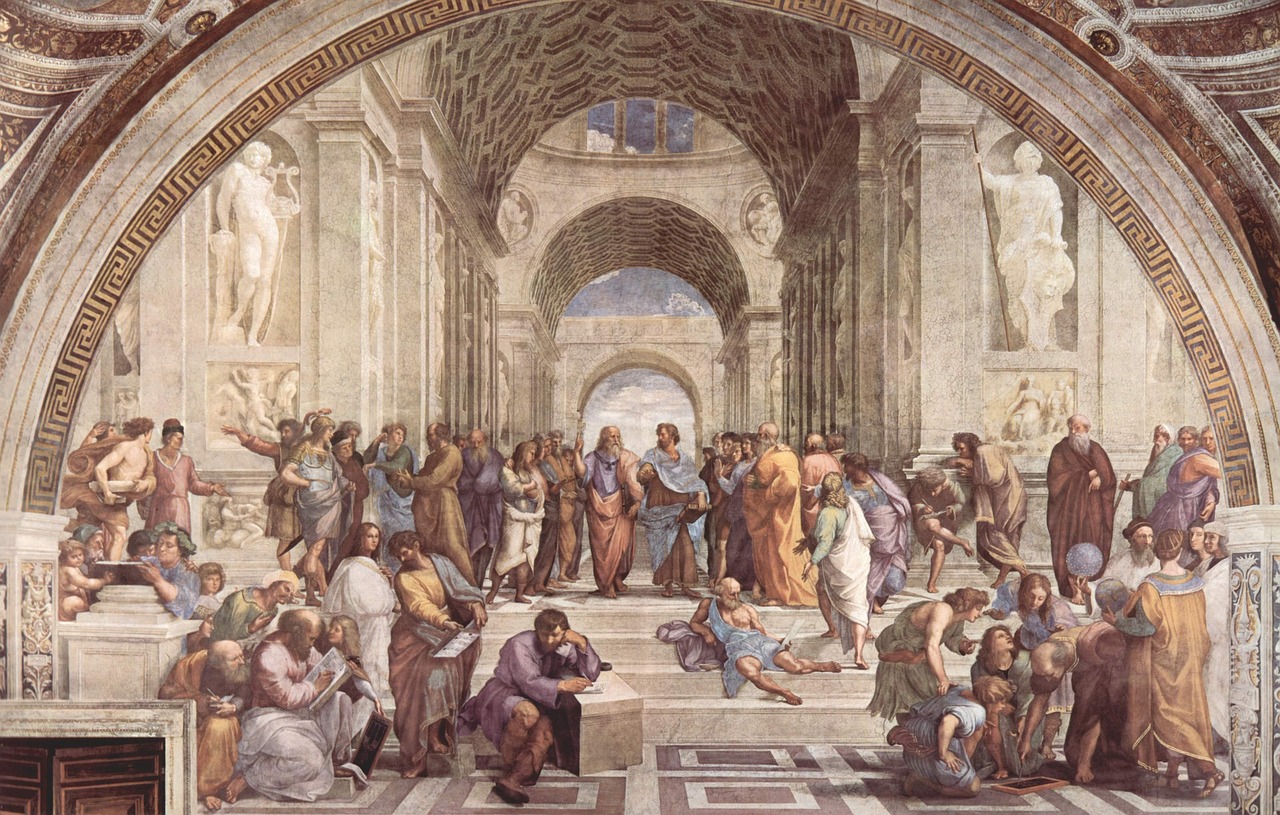
Historical Development
Friedrich Hegel's perspective on offers a fascinating lens through which we can view the evolution of human society. He proposed that history is not merely a series of random events but rather a rational process that unfolds in a dialectical manner. This means that each historical epoch is shaped by a progression of ideas, conflicts, and resolutions, leading to greater levels of human freedom and self-awareness. Hegel's assertion that "the real is rational and the rational is real" encapsulates his belief that the unfolding of history is inherently logical.
At the core of Hegel's historical framework is the idea that every period of history reflects a thesis—a prevailing idea or social structure. This thesis inevitably encounters its antithesis, representing opposing forces or contradictions. The clash between these two elements results in a synthesis, which transcends and reconciles the conflict, leading to a new thesis. This cyclical process continues, illustrating how each stage of history is interconnected and contributes to the overarching narrative of human progress.
To better understand Hegel's historical development, consider the following table that summarizes key historical epochs in his philosophy:
| Epoch | Thesis | Antithesis | Synthesis |
|---|---|---|---|
| Ancient World | Individuality | Community | City-States |
| Medieval Period | Faith | Reason | Renaissance |
| Modern Era | Liberty | Authority | Democratic State |
Hegel's view of history as a rational process underscores his belief in the ultimate realization of human freedom. He posited that as societies evolve, they become increasingly aware of their own freedom and the ethical implications of their actions. This notion is particularly relevant in contemporary discussions about the role of the state and the individual's place within it. Hegel contended that history is a journey toward greater self-consciousness and freedom, where each generation builds upon the insights of the past.
Moreover, Hegel's historical development framework has influenced various fields, including political theory, sociology, and even psychology. His ideas encourage us to reflect on how our current societal structures emerged from historical conflicts and resolutions. This perspective invites us to consider how we can navigate contemporary challenges by understanding the dialectical nature of our history.
In essence, Hegel's historical development concept serves as a reminder that our past is not just a collection of events but a dynamic process that shapes our present and future. By recognizing the interplay of ideas and their evolution over time, we can gain valuable insights into the complexities of human existence and the ongoing quest for freedom and self-realization.
- What is Hegel's dialectical method? Hegel's dialectical method involves the process of thesis, antithesis, and synthesis, where conflicting ideas lead to new understandings and progress.
- How did Hegel influence Marxism? Hegel's ideas on dialectics were adapted by Karl Marx to critique capitalism and advocate for social change through historical materialism.
- What is the significance of self-consciousness in Hegel's philosophy? Hegel emphasized self-consciousness as essential for individual identity, highlighting the relationship between the individual and society.
- How does Hegel's view of history affect contemporary political theory? Hegel's insights into the state and freedom continue to inform discussions on democracy, rights, and the ethical dimensions of governance.

Ethical Life (Sittlichkeit)
Friedrich Hegel's concept of ethical life, or Sittlichkeit, is a fascinating exploration of how individual identity is deeply intertwined with community and social institutions. At its core, Hegel argues that our ethical existence is not merely a matter of personal choice or individual morality; rather, it is profoundly shaped by the cultural, social, and historical contexts in which we find ourselves. This idea invites us to consider how our values and beliefs are influenced by the communities we belong to, much like how a tree derives its strength not just from its roots but also from the soil, weather, and environment around it.
In Hegel's view, ethical life is manifested through three primary spheres: family, civil society, and the state. Each of these spheres plays a crucial role in shaping individual identity and ethical development:
- Family: The family is the first social unit where individuals learn about love, responsibility, and mutual recognition. It serves as the foundation for personal development, where ethical values are first instilled.
- Civil Society: This is where individuals engage in economic and social interactions. In civil society, people begin to understand their roles as citizens and the importance of social institutions, such as education and law, in fostering ethical behavior.
- The State: Hegel posits that the state represents the culmination of ethical life. It embodies the collective will and rationality of the community, providing a framework within which individuals can achieve true freedom while being part of a larger whole.
What's remarkable about Hegel's concept of ethical life is its emphasis on the relational aspect of ethics. In a world that often champions individualism, Hegel reminds us that our identities are not formed in isolation but are instead a product of our interactions with others. This perspective encourages a sense of social responsibility and highlights the importance of engaging with our communities to foster a more ethical society.
Moreover, Hegel's ideas on ethical life have significant implications for contemporary discussions about social justice, community engagement, and individual rights. By recognizing that our ethical obligations extend beyond ourselves, we can cultivate a more empathetic and interconnected society. This is particularly relevant in today's world, where issues like inequality and social fragmentation challenge our sense of community. Understanding ethical life as a dynamic interplay between the individual and the collective can inspire individuals to take action for the greater good, ultimately leading to a more harmonious society.
In summary, Hegel's notion of ethical life (Sittlichkeit) underscores the importance of community and social institutions in shaping our identities and ethical frameworks. By acknowledging our interconnectedness, we can better navigate the complexities of modern life and contribute to a more just and ethical world.
- What is Hegel's concept of ethical life? Hegel's ethical life, or Sittlichkeit, emphasizes the role of community and social institutions in shaping individual identity and ethical behavior.
- How does ethical life differ from individual morality? Ethical life is shaped by social contexts, whereas individual morality often focuses on personal choices and beliefs.
- Why is the state important in Hegel's ethical life? The state represents the collective will and rationality of the community, providing a framework for individuals to achieve freedom while being part of a larger whole.

Critiques of Hegelian Thought
Friedrich Hegel's philosophy, while revolutionary and influential, has not escaped scrutiny. Critics have raised several concerns regarding his work, particularly focusing on his idealism and the perceived obscurity of his writings. One of the most significant critiques revolves around Hegel's tendency to prioritize the abstract over the concrete. Many argue that his dialectical method, which involves the triadic structure of thesis, antithesis, and synthesis, can sometimes lead to convoluted reasoning that obscures rather than clarifies philosophical discussions. This complexity has led some to label Hegel's work as overly esoteric, making it less accessible to those outside the philosophical elite.
Moreover, Hegel's emphasis on the rational unfolding of history has been challenged by scholars who advocate for more empirical approaches. They argue that Hegel's view of history as a linear progression towards freedom is overly simplistic and fails to account for the chaotic and often irrational nature of human events. Critics contend that by framing history as a rational process, Hegel neglects the role of chance, conflict, and the myriad factors that shape human experience. This has led to a divergence in thought, with some philosophers advocating for a more pluralistic understanding of historical development.
Another point of contention is Hegel's conception of the state and its ethical implications. While Hegel saw the state as the realization of ethical life, many have critiqued this view as potentially endorsing authoritarianism. By placing the state at the center of ethical existence, critics argue that Hegel risks undermining individual freedom and autonomy. This critique has been particularly resonant in the context of modern political theory, where the balance between state authority and individual rights is a hotly debated issue.
Despite these critiques, Hegel's influence persists, and many contemporary thinkers have sought to engage with his ideas critically. The debates surrounding his philosophy have prompted a rich discourse that continues to shape modern thought. In fact, Hegel's challenges have often inspired new philosophical movements, encouraging thinkers to refine their arguments and explore alternative perspectives. For example, existentialists and postmodernists have drawn upon Hegelian themes while diverging from his conclusions, illustrating the dynamic nature of philosophical inquiry.
Ultimately, Hegel's work serves as a double-edged sword; it is both a foundation for contemporary philosophical debates and a source of contention. The critiques of Hegelian thought not only highlight the limitations of his ideas but also underscore the importance of engaging with his legacy. By grappling with these critiques, modern philosophers can strive for a more nuanced understanding of the complexities of human existence and the philosophical landscape.
- What are the main critiques of Hegel's philosophy? Critics often point to Hegel's abstract idealism, the obscurity of his writings, and his views on the state as areas of concern.
- How has Hegel influenced modern philosophical thought? Hegel's ideas have sparked significant debates, leading to the development of various philosophical movements, including existentialism and postmodernism.
- Why is Hegel's dialectical method important? The dialectical method introduced by Hegel revolutionized the way conflict and resolution are understood in philosophical discourse, influencing numerous fields of study.

Impact on Existentialism
Friedrich Hegel’s philosophy has had a profound impact on the development of existentialism, a movement that delves deep into the human experience, focusing on the individual’s quest for meaning in a seemingly indifferent universe. At the heart of Hegel's thought is the concept of self-consciousness, which emphasizes that individuals are not merely passive observers of the world; rather, they are active participants in shaping their reality. This idea resonates strongly with existentialist thinkers, who grapple with the complexities of existence, freedom, and authenticity.
One of the key contributions of Hegel to existentialist thought is his exploration of self-consciousness. For Hegel, self-consciousness arises from the recognition of oneself in relation to others. This interplay is crucial because it highlights that our identities are not formed in isolation but are deeply intertwined with our social interactions. The existentialists took this notion further, emphasizing the importance of personal recognition and the struggle for identity in a world that often feels chaotic and absurd.
Moreover, Hegel’s examination of freedom and alienation has been pivotal for existentialist philosophy. He posits that true freedom is not merely the absence of constraints but is achieved through self-realization within the context of ethical life, or Sittlichkeit. This notion of freedom as a relational concept laid the groundwork for existentialist thinkers like Jean-Paul Sartre, who argued that individuals must confront their own freedom and the weight of their choices in a world devoid of inherent meaning. The struggle against alienation becomes a central theme in existentialism, as individuals navigate the tension between societal expectations and their authentic selves.
In the existentialist framework, this tension often manifests as a sense of absurdity. The realization that life may lack objective meaning can lead to feelings of disconnection and existential dread. Yet, this very confrontation with absurdity can also be liberating. Just as Hegel saw contradictions as driving forces behind historical progress, existentialists view the absurd as a catalyst for personal growth and self-discovery. By acknowledging the absurd, individuals can forge their own paths and create meaning in their lives.
To further illustrate the impact of Hegelian thought on existentialism, consider the following table that summarizes key concepts:
| Hegelian Concept | Existentialist Interpretation |
|---|---|
| Self-Consciousness | Identity shaped through social interaction |
| Freedom | Authentic existence through personal choice |
| Alienation | Struggle against societal norms to find self |
| Absurdity | Confronting meaninglessness leads to personal freedom |
In summary, Hegel's influence on existentialism is unmistakable. His ideas about self-consciousness, freedom, alienation, and the absurd have paved the way for existentialist thinkers to explore the depths of human existence. By engaging with Hegelian philosophy, existentialists have been able to articulate the complexities of the human condition, embracing the challenges of freedom and the search for authenticity in a world that often feels overwhelming. This dynamic interplay of ideas continues to inspire and provoke thought, making Hegel's legacy a vital part of existentialist discourse.
- What is Hegel's dialectical method? Hegel's dialectical method involves the process of thesis, antithesis, and synthesis, which illustrates how conflicting ideas can lead to a higher understanding.
- How did Hegel influence Marxism? Hegel's ideas on dialectics were adapted by Karl Marx to critique capitalism and advocate for social change through historical materialism.
- What is the significance of self-consciousness in existentialism? Self-consciousness is crucial as it emphasizes the individual's role in shaping their identity through social interactions and recognition.
- How does Hegel's concept of freedom differ from existentialist views? Hegel sees freedom as relational and achieved through ethical life, while existentialists focus on personal choice and the struggle for authenticity.

Self-Consciousness
Friedrich Hegel’s exploration of is a pivotal element in his philosophical framework, serving as a bridge between the individual and the collective. At its core, self-consciousness refers to the awareness of oneself as a distinct entity, but Hegel takes this concept much further. He argues that self-consciousness is not merely an isolated experience; rather, it emerges through recognition and interaction with others. Think of it like a dance where two partners must acknowledge each other's presence and movements to create a harmonious performance. Without this mutual recognition, one’s self-consciousness remains fragmented and incomplete.
Hegel famously illustrated this concept through the Master-Slave Dialectic, where he posits that true self-consciousness is achieved only when one is recognized by another. In this dynamic, the master gains self-awareness through domination, while the slave, through labor and the act of creating, ultimately achieves a deeper understanding of their own identity. This relationship highlights the intricate web of dependencies that shape our understanding of ourselves and the world around us.
Moreover, Hegel’s notion of self-consciousness emphasizes the importance of community. He believed that individuals are not solitary beings; instead, our identities are deeply intertwined with the societal structures and cultural narratives we inhabit. This idea resonates strongly in today’s discussions about identity politics and social responsibility. In a world where we often feel pressured to conform to societal norms, Hegel’s philosophy invites us to reflect on the balance between individuality and community.
In contemporary discourse, Hegel’s insights into self-consciousness have influenced various fields, from psychology to sociology. For instance, the idea that our sense of self is shaped by social interactions can be seen in modern psychological theories of identity formation. The implications of Hegelian thought extend into realms like existentialism, where the struggle for authentic selfhood becomes a central theme.
To summarize, Hegel’s concept of self-consciousness is a rich and multifaceted idea that encourages us to look beyond the individual. It challenges us to consider how our identities are constructed through relationships and societal contexts. By understanding self-consciousness as a dynamic interplay between the individual and the collective, we can appreciate the complexities of human existence and the profound impact of our interactions on our sense of self.
- What is Hegel's Master-Slave Dialectic?
The Master-Slave Dialectic is a concept introduced by Hegel to illustrate the development of self-consciousness through recognition and the dynamics of power in relationships. - How does self-consciousness relate to community?
Hegel argues that self-consciousness is shaped by our interactions with others, making community essential for the formation of identity. - Why is self-consciousness important in modern philosophy?
Understanding self-consciousness helps us navigate issues of identity and social responsibility, emphasizing the interplay between the individual and society.

Freedom and Alienation
Friedrich Hegel's exploration of freedom and alienation is a cornerstone of his philosophical thought, providing deep insights into the human condition. At its core, Hegel posits that true freedom is not merely the absence of constraints but rather the realization of one's potential within a social context. This perspective challenges the simplistic notion of freedom as individual autonomy; instead, it emphasizes the interconnectedness of individuals within a community. Imagine a bird in a cage: while it may have the freedom to fly, it can only truly experience freedom when it soars through the open sky, interacting with other birds and the environment.
However, this ideal of freedom is often met with the reality of alienation. In modern society, many individuals feel disconnected from the very structures that define their existence. Hegel argues that alienation arises when individuals are estranged from their work, their communities, and even from themselves. This disconnection can lead to feelings of isolation and despair, as people struggle to find meaning in a world that seems increasingly fragmented. To illustrate this, consider the experience of a factory worker who performs repetitive tasks without any sense of purpose or connection to the final product. This worker may possess the freedom to choose a different job, yet the alienation from their labor can overshadow that freedom, trapping them in a cycle of dissatisfaction.
Hegel's dialectical method provides a framework for understanding how freedom and alienation interact. He suggests that through the process of thesis (the current state of being), antithesis (the conflict or contradiction), and synthesis (the resolution), individuals can navigate their experiences of freedom and alienation. For example, when a person recognizes their alienation, they can begin to seek connections and redefine their role within their community, ultimately achieving a more profound sense of freedom. This synthesis is not a one-time event but an ongoing journey of self-discovery and social engagement.
Furthermore, Hegel's insights remain relevant in contemporary discussions about identity and belonging. In a world increasingly characterized by globalization and digital interactions, many individuals grapple with feelings of alienation despite being more connected than ever. Social media, while offering platforms for expression, can also exacerbate feelings of isolation as people compare their lives to curated versions of others' realities. Hegel’s philosophy encourages us to reflect on these experiences and seek authentic connections that foster genuine freedom.
In summary, Hegel's examination of freedom and alienation invites us to reconsider our understanding of what it means to be free. It challenges us to look beyond individualistic notions and recognize the importance of community, relationships, and self-awareness in the pursuit of true freedom. By engaging with these ideas, we can better navigate the complexities of modern existence and strive for a more fulfilling life.
- What is Hegel's definition of freedom? Hegel defines freedom as the realization of one's potential within a social context, emphasizing the importance of community and relationships.
- How does alienation relate to modern society? Alienation in modern society often stems from disconnection from work, community, and self, leading to feelings of isolation and dissatisfaction.
- Can Hegel's ideas help address feelings of alienation? Yes, Hegel's dialectical method encourages individuals to engage with their communities and redefine their roles, ultimately fostering a sense of freedom and belonging.

Legacy in Political Philosophy
Friedrich Hegel's philosophical contributions have left an indelible mark on modern political thought, influencing how we perceive the state, freedom, and ethics in governance. His ideas challenge us to reconsider the relationship between individuals and the structures that govern them. Hegel's vision of the state is not merely a mechanism of control but a manifestation of ethical life, or Sittlichkeit, where individual freedom is realized through participation in social and political institutions. This perspective has sparked ongoing debates about the role of the state in enhancing or constraining personal liberties.
One of Hegel's most significant contributions to political philosophy is his assertion that true freedom is achieved not in isolation but in the context of community and social relationships. He posited that individuals find their identity and freedom through their connections with others, emphasizing that the state plays a crucial role in facilitating this process. In contemporary discussions, this raises important questions about the balance between individual rights and collective responsibilities.
Moreover, Hegel's dialectical method provides a framework for understanding political progress as a dynamic process. He believed that history unfolds rationally, with each stage representing a synthesis of previous contradictions. This idea has profound implications for political theory, suggesting that societal change is not just possible but inevitable as opposing forces interact and resolve their conflicts. For instance, this can be seen in the evolution of democratic ideals, where the tensions between liberty and equality continuously shape governance structures.
Hegel's thoughts on the ethical dimensions of governance also inform contemporary debates about democracy and human rights. He argued that the state must embody ethical principles and promote the common good, a notion that resonates with modern concepts of social justice. In this light, political institutions are not merely instruments of power but are also responsible for fostering an environment where individual freedoms can flourish.
To illustrate Hegel's impact on political philosophy, consider the following table that summarizes key concepts:
| Concept | Description |
|---|---|
| Ethical Life (Sittlichkeit) | The idea that individual freedom is realized through participation in community and social institutions. |
| Dialectical Method | A process of thesis, antithesis, and synthesis that describes the evolution of ideas and societal progress. |
| Historical Development | History unfolds rationally, reflecting the evolution of human freedom and self-awareness. |
| State and Freedom | The state is a manifestation of ethical life, essential for achieving true freedom. |
Ultimately, Hegel's legacy in political philosophy invites us to engage with the complexities of freedom, identity, and governance. His ideas challenge us to think critically about the role of the state in our lives and the ethical implications of political structures. As we navigate the intricacies of modern political landscapes, Hegel's insights remain a vital part of the conversation, urging us to consider how our individual and collective identities shape the world around us.
- What is Hegel's view on the state? Hegel sees the state as an embodiment of ethical life, where individual freedom is achieved through participation in social and political institutions.
- How does Hegel influence modern political thought? His dialectical method and concepts of freedom and ethical life inform contemporary discussions about democracy, rights, and social responsibility.
- What is the significance of the dialectical method in politics? The dialectical method illustrates how societal progress arises from the resolution of contradictions, driving historical change.
Frequently Asked Questions
- What is Hegel's dialectical method?
Hegel's dialectical method is a philosophical framework that involves a dynamic process of thesis, antithesis, and synthesis. It suggests that contradictions are essential for progress and understanding, as opposing ideas clash and resolve to form a higher level of understanding.
- How did Hegel influence Marxism?
Hegel's ideas significantly influenced Karl Marx, particularly through the adaptation of his dialectical method to critique capitalism. Marx utilized Hegelian dialectics to develop historical materialism, arguing that societal changes arise from material conditions and class struggles.
- What are the contradictions in society according to Hegel?
Hegel believed that contradictions within societal structures are crucial for historical development. These opposing forces drive change and transformation, reflecting the complexities of human consciousness and the evolution of society over time.
- What does Hegel mean by ethical life (Sittlichkeit)?
Ethical life, or Sittlichkeit, refers to the idea that individual identity is shaped by community and social institutions. Hegel emphasized the importance of these structures in fostering moral development and social responsibility, which remains a significant topic in contemporary ethics.
- What are some common critiques of Hegelian thought?
Hegel's philosophy has faced criticism for its idealism and perceived obscurity. Critics argue that his concepts can be difficult to understand and that his focus on abstract ideas may overlook practical realities, sparking ongoing debates in modern philosophical discourse.
- How did Hegel impact existentialism?
Hegel's emphasis on self-consciousness and the individual's role in shaping reality laid the groundwork for existentialist thinkers. They explored themes of freedom, authenticity, and the absurd, building upon Hegel's ideas to address the complexities of human existence.
- What is the significance of self-consciousness in Hegel's philosophy?
Self-consciousness is vital in Hegel's philosophy as it highlights the interplay between the individual and society. It underscores the importance of recognition and how individuals develop their identities through interactions with others, influencing existentialist concepts of identity.
- What are Hegel's views on freedom and alienation?
Hegel explored the concepts of freedom and alienation, emphasizing the individual's struggle for authenticity within a complex social world. His insights have been pivotal for existentialist thought, prompting deeper reflections on personal freedom and societal constraints.
- How does Hegel's legacy influence political philosophy today?
Hegel's ideas on the state, freedom, and ethical governance continue to inform contemporary political theory. His work influences debates on democracy, individual rights, and the role of the state in shaping personal lives, making his philosophy relevant in current political discussions.



